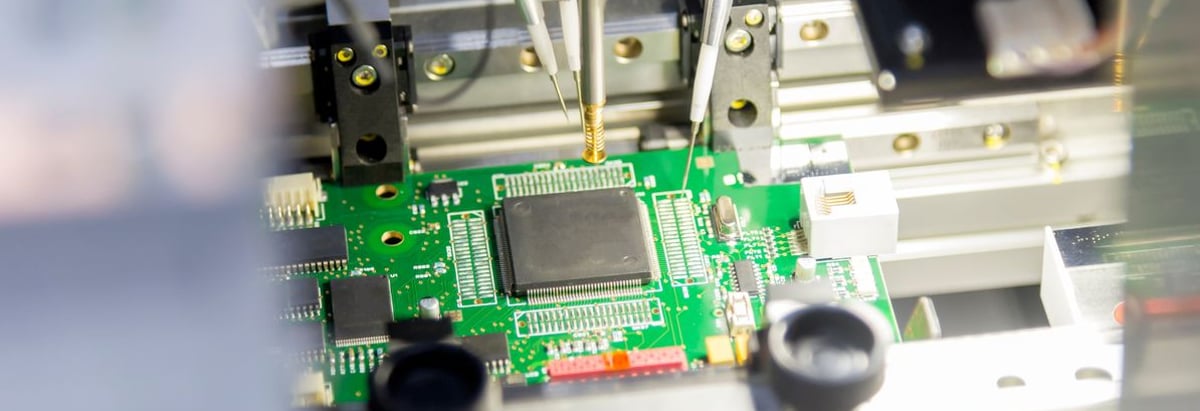Stock Analysis
- Japan
- /
- Semiconductors
- /
- TSE:7729
Here's Why Tokyo Seimitsu (TSE:7729) Can Manage Its Debt Responsibly

Some say volatility, rather than debt, is the best way to think about risk as an investor, but Warren Buffett famously said that 'Volatility is far from synonymous with risk.' So it might be obvious that you need to consider debt, when you think about how risky any given stock is, because too much debt can sink a company. We can see that Tokyo Seimitsu Co., Ltd. (TSE:7729) does use debt in its business. But should shareholders be worried about its use of debt?
When Is Debt Dangerous?
Generally speaking, debt only becomes a real problem when a company can't easily pay it off, either by raising capital or with its own cash flow. In the worst case scenario, a company can go bankrupt if it cannot pay its creditors. While that is not too common, we often do see indebted companies permanently diluting shareholders because lenders force them to raise capital at a distressed price. Of course, the upside of debt is that it often represents cheap capital, especially when it replaces dilution in a company with the ability to reinvest at high rates of return. When we examine debt levels, we first consider both cash and debt levels, together.
Check out our latest analysis for Tokyo Seimitsu
What Is Tokyo Seimitsu's Net Debt?
You can click the graphic below for the historical numbers, but it shows that Tokyo Seimitsu had JP¥20.3b of debt in December 2024, down from JP¥25.3b, one year before. But it also has JP¥53.0b in cash to offset that, meaning it has JP¥32.7b net cash.
A Look At Tokyo Seimitsu's Liabilities
The latest balance sheet data shows that Tokyo Seimitsu had liabilities of JP¥46.3b due within a year, and liabilities of JP¥15.9b falling due after that. Offsetting this, it had JP¥53.0b in cash and JP¥32.6b in receivables that were due within 12 months. So it actually has JP¥23.4b more liquid assets than total liabilities.
This short term liquidity is a sign that Tokyo Seimitsu could probably pay off its debt with ease, as its balance sheet is far from stretched. Succinctly put, Tokyo Seimitsu boasts net cash, so it's fair to say it does not have a heavy debt load!
And we also note warmly that Tokyo Seimitsu grew its EBIT by 17% last year, making its debt load easier to handle. When analysing debt levels, the balance sheet is the obvious place to start. But it is future earnings, more than anything, that will determine Tokyo Seimitsu's ability to maintain a healthy balance sheet going forward. So if you're focused on the future you can check out this free report showing analyst profit forecasts.
Finally, a company can only pay off debt with cold hard cash, not accounting profits. Tokyo Seimitsu may have net cash on the balance sheet, but it is still interesting to look at how well the business converts its earnings before interest and tax (EBIT) to free cash flow, because that will influence both its need for, and its capacity to manage debt. Over the last three years, Tokyo Seimitsu reported free cash flow worth 2.0% of its EBIT, which is really quite low. That limp level of cash conversion undermines its ability to manage and pay down debt.
Summing Up
While we empathize with investors who find debt concerning, you should keep in mind that Tokyo Seimitsu has net cash of JP¥32.7b, as well as more liquid assets than liabilities. And it impressed us with its EBIT growth of 17% over the last year. So we don't have any problem with Tokyo Seimitsu's use of debt. There's no doubt that we learn most about debt from the balance sheet. But ultimately, every company can contain risks that exist outside of the balance sheet. For example, we've discovered 2 warning signs for Tokyo Seimitsu (1 is a bit unpleasant!) that you should be aware of before investing here.
At the end of the day, it's often better to focus on companies that are free from net debt. You can access our special list of such companies (all with a track record of profit growth). It's free.
Valuation is complex, but we're here to simplify it.
Discover if Tokyo Seimitsu might be undervalued or overvalued with our detailed analysis, featuring fair value estimates, potential risks, dividends, insider trades, and its financial condition.
Access Free AnalysisHave feedback on this article? Concerned about the content? Get in touch with us directly. Alternatively, email editorial-team (at) simplywallst.com.
This article by Simply Wall St is general in nature. We provide commentary based on historical data and analyst forecasts only using an unbiased methodology and our articles are not intended to be financial advice. It does not constitute a recommendation to buy or sell any stock, and does not take account of your objectives, or your financial situation. We aim to bring you long-term focused analysis driven by fundamental data. Note that our analysis may not factor in the latest price-sensitive company announcements or qualitative material. Simply Wall St has no position in any stocks mentioned.
About TSE:7729
Tokyo Seimitsu
Manufactures and sells semiconductor production equipment (SPE) and measuring instruments in Japan.

